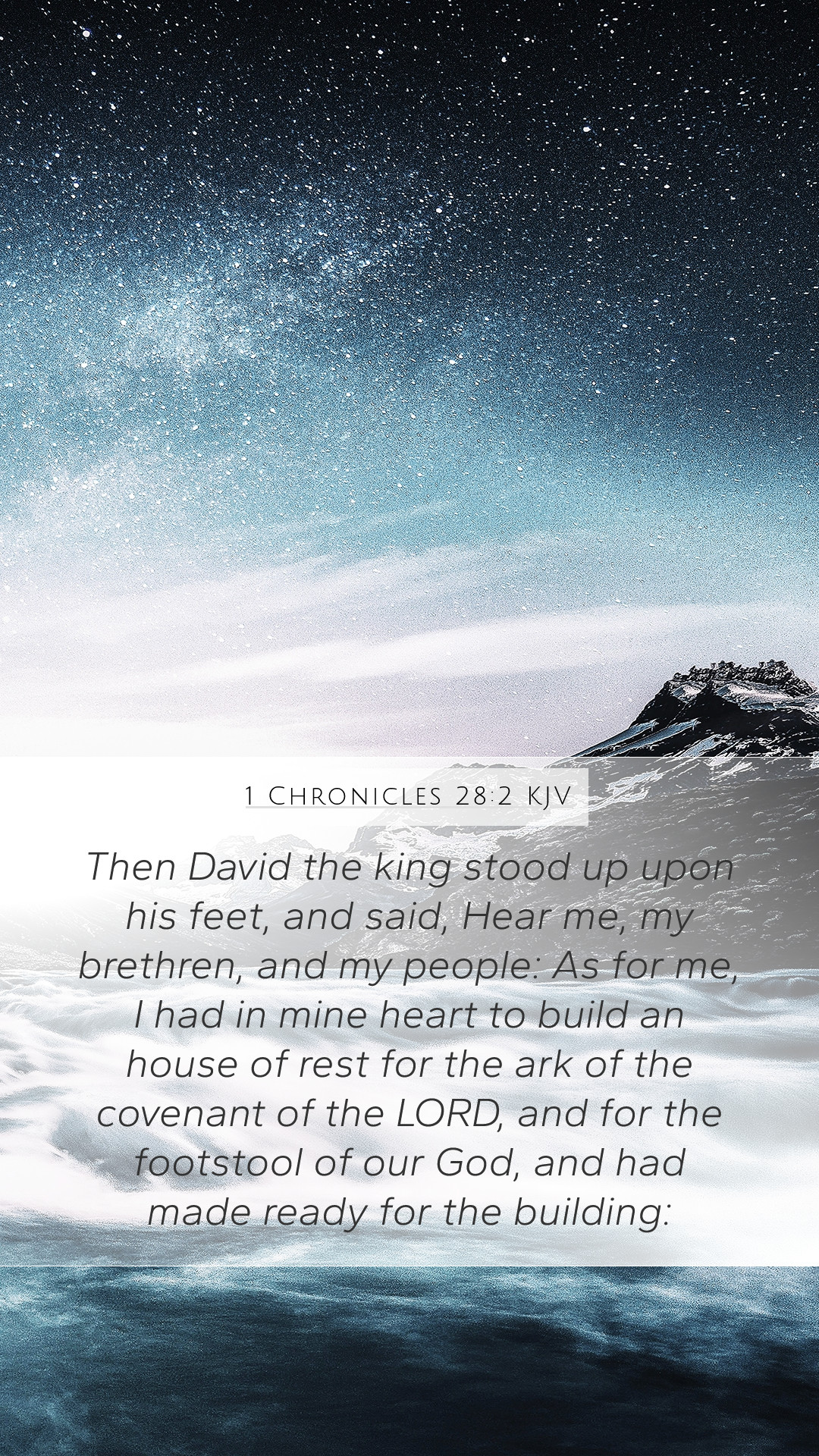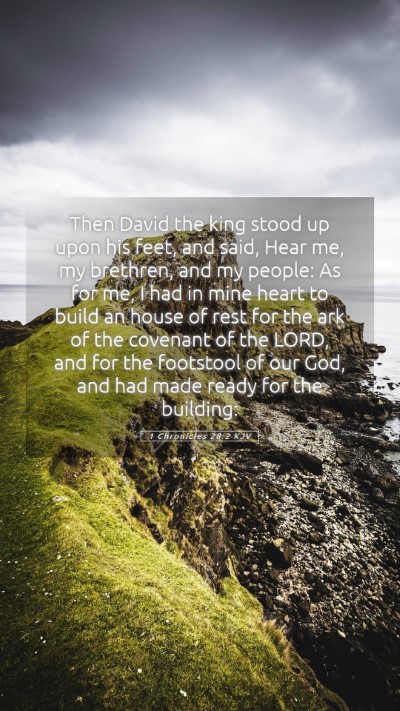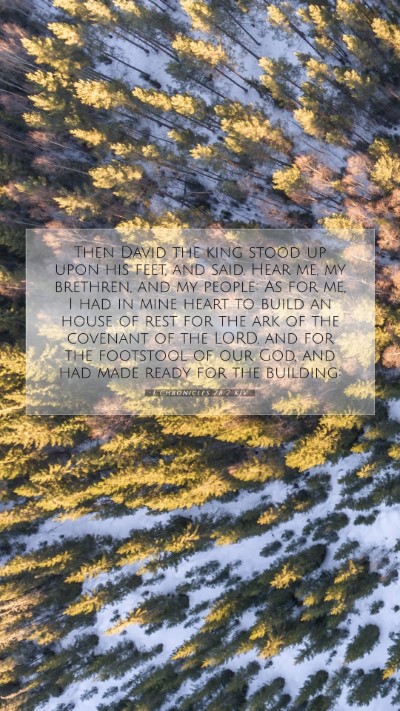Understanding 1 Chronicles 28:2
Bible Verse: 1 Chronicles 28:2
Verse Text: "Then King David rose to his feet and said, 'Listen to me, my brothers and my people. I had it in my heart to build a house as a place of rest for the ark of the covenant of the Lord, for the footstool of our God, and I made plans to build it.'
Verse Explanation and Meaning
The verse captures a significant moment in the life of King David where he expresses his intention and desire to build a temple for the Lord. This aspiration reflects not only David's devotion but also his understanding of God's holiness and the importance of a dedicated place of worship. Here, we combine insights from various public domain commentaries.
Matthew Henry's Commentary Insights
- Intent of David: Matthew Henry emphasizes David's sincere desire to create a permanent dwelling for the Ark of the Covenant, which represented God's presence among His people. Henry notes that this desire stemmed from a place of gratitude and recognition of God’s favors.
- Act of Worship: David’s intention signifies an act of worship that goes beyond ritual; it embodies the longing of the heart to honor God in a tangible way.
- God's Approval: Although God would later inform David that he was not to build the temple, Henry points out that God appreciated David's heart and intentions, highlighting that God looks at the motive behind our actions.
Albert Barnes' Commentary Insights
- Public Declaration: According to Barnes, David's public declaration serves to inspire his people and gather them around the vision of constructing a temple.
- Understanding the Ark: Barnes elucidates the significance of the Ark as a symbol of God's covenant with Israel, which made the desire for a dedicated house of worship all the more significant.
- Preparation for the Future: The verse also reflects a transition phase in Israel’s history from a nomadic lifestyle to one of stability and permanence, as it looks forward to building a centralized place of worship.
Adam Clarke's Commentary Insights
- David’s Legacy: Clarke discusses how this moment defines David’s legacy, emphasizing not just what he achieved, but what he aspired to achieve, showing his dedication to God’s work.
- God’s Response: Clarke notes the importance of God's response to David’s intentions, wherein although God would deny David the ability to build the temple, He would choose David's son to fulfill this purpose.
- Significance of the Footstool: Clarke highlights the imagery of the Ark as God's footstool, suggesting a collective reverence that the people of Israel were meant to have towards God’s presence.
Bible Study Insights
This passage provides rich material for Bible study groups and serves as a point of reflection on how intentions toward holiness and worship are viewed by God. It encourages individuals to think about their motives in pursuing acts of faith and honor towards God.
Application of the Verse
- Personal Intentions: Consider what you are intending to do for God and reflect upon your motivations. Like David, your desires may not always align with God’s plan, but what matters is the heart behind them.
- Collective Worship: Engage in discussions within Bible study groups about the importance of community worship and how collective intentions can manifest in your faith community.
- Preparation and Expectation: Just as David prepared extensively for a task he would not complete, think about how you can prepare for the future endeavors of faith that might be passed to future generations.
Cross References
- 2 Samuel 7:2-4 - God’s covenant with David regarding the temple.
- 1 Kings 5:3-5 - Solomon’s preparations to build the temple.
- Psalm 132:1-5 - A reflection on the significance of God’s dwelling place.
Conclusion
In summary, 1 Chronicles 28:2 invites readers to explore the depths of human intention in relation to divine purpose. It opens avenues for deeper Bible verse interpretations that encompass historical context and personal application in modern worship. Through various commentaries, we can see the multifaceted meaning of this scripture, revealing the profound connection between a believer's heart and God’s sovereign plan.


